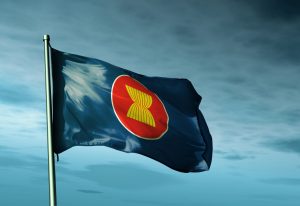The leaders of the Association of Southeast Asian Nations (ASEAN) convened in Labuan Bajo, Indonesia, on May 10-11 for the 42nd ASEAN Summit. In a landmark move to address the growing concern of human trafficking facilitated by the abuse of technology, they released the ASEAN Leaders’ Declaration on Combating Trafficking in Persons Caused by the Abuse of Technology. Recognizing the urgent need for collective action, the declaration outlines a comprehensive strategy to tackle this complex and evolving challenge.
Human trafficking is a grave violation of human rights and a global issue that demands immediate attention. In recent years, the abuse of technology has increasingly facilitated this heinous crime, making it imperative for ASEAN nations to join forces and develop effective measures to combat it. By harnessing the power of technology for good and adopting a coordinated approach, ASEAN aims to protect vulnerable individuals, prosecute perpetrators, and dismantle trafficking networks.
The declaration begins by emphasizing the importance of preventing and combating trafficking in persons, while also recognizing the impact of technological advancements on the modus operandi of traffickers. It acknowledges that technology can be exploited to deceive, recruit, transport, and exploit victims, thereby necessitating targeted interventions to counter these new challenges.
ASEAN leaders have committed to several key principles outlined in the declaration. First, they pledge to enhance regional cooperation and information sharing among member states, acknowledging that addressing cross-border trafficking requires a collective effort. This collaboration will facilitate the swift exchange of intelligence, support joint investigations, and enable the sharing of best practices and successful strategies.
Furthermore, the declaration emphasizes the importance of robust legislative frameworks and law enforcement capacities. ASEAN nations commit to strengthening their national legislation, aligning it with international standards, and ensuring its effective enforcement. This includes improving training programs for law enforcement agencies, judges, and prosecutors to enhance their understanding of the evolving nature of trafficking in persons caused by the abuse of technology.
Another critical aspect of the declaration is the commitment to victim-centered approaches. Recognizing that survivors of trafficking require comprehensive support and protection, ASEAN leaders emphasize the need to provide victims with access to justice, social services, healthcare, and rehabilitation programs. Special attention will be given to vulnerable groups, such as women, children, migrants, and refugees, who are particularly susceptible to exploitation.
The declaration also highlights the importance of engaging with the private sector, civil society organizations, and academia. Collaboration with these stakeholders will foster innovative solutions, develop preventive measures, and promote responsible use of technology to counter trafficking. By leveraging the expertise and resources of various sectors, ASEAN aims to create a multidimensional approach to combating trafficking in persons.
To ensure effective implementation, ASEAN leaders have agreed to establish a dedicated regional mechanism on combating trafficking in persons caused by the abuse of technology. This mechanism will serve as a platform for regular dialogue, coordination, and monitoring of progress. It will also facilitate the sharing of resources, technical assistance, and capacity building initiatives among member states.
In conclusion, the ASEAN Leaders’ Declaration on Combating Trafficking in Persons Caused by the Abuse of Technology represents a significant step forward in addressing the evolving challenges of human trafficking in the digital age. By acknowledging the role of technology in facilitating this crime and committing to a comprehensive strategy, ASEAN nations demonstrate their collective determination to protect vulnerable individuals, bring perpetrators to justice, and eradicate trafficking networks. With sustained efforts and cooperation, ASEAN can set a precedent for the global community in combating the abuse of technology in the context of human trafficking.

































